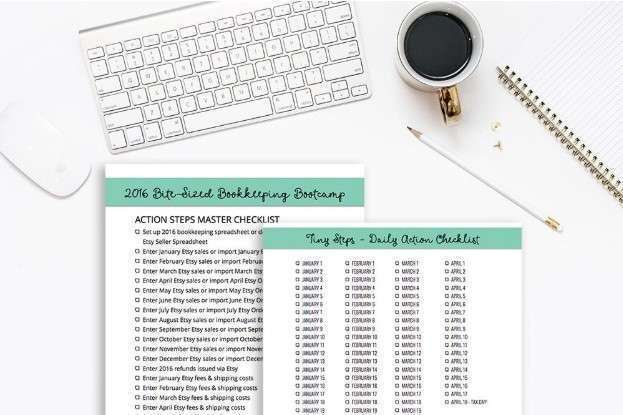Content
From here, you would offer details about yourself, including why you’re opening the escrow, and information about any other parties involved in the escrow. However, for a general holding escrow account that you need to open, you can simply contact a bank and ask to open an escrow account. Foreigners Real Estate Escrow investing in Mexican real estate are advised not to use closing company trust accounts. The realtor’s board in each US State will only permit funds to be deposited in Trust for transactions taking place in the State of which the realtor is an active member – representing the buyer of the seller.

An escrow holdback is performed when there are still further conditions to the sale. For example, the buyer may have found a serious issue during the final walkthrough. In that case, the release of the funds might be contingent on the seller completing those final repairs. In other cases, the seller may be remaining on the property for a period of time. In that scenario, the money would be disbursed when the seller actually vacates the property. But depending on how the sales process goes – or doesn’t go – the deposit might go to the seller or the lender, or be returned to the buyer.
Is An Escrow Account Required?
When the home buyer and seller have agreed on the terms of the deal and signed a purchase agreement, they have officially entered the escrow stage of the real estate process. In addition to giving your mortgage lender your monthly mortgage payment, you’ll also give the lender the monthly, prorated equivalent of what your insurance and tax payments will be. Learn about what an escrow account is and how it helps you https://www.bookstime.com/ when you purchase property or rent an apartment in New York. Understand the fundamentals and why escrows are in place for real estate transactions. In order to ensure that they are not collecting too much or too little, your lender or servicer will analyze your escrow account annually. If they determine that they have collected too much money for taxes and insurance, they will provide you with an escrow refund.

Designations & CertificationsAcknowledging experience and expertise in various real estate specialties, awarded by NAR and its affiliates. State & Metro Area DataAffordability, economic, and buyer & seller profile data for areas in which you live and work.
Escrow Accounts For Home Buying
The first Internet escrow company to be licensed was Escrow.com, founded by Fidelity National Financial in 1999. Principal, interest, taxes, insurance is the term for the sum of a mortgage payment made of principal, interest, taxes, and insurance premiums.
- After all, the bank doesn’t want to let buyers borrow $500,000 on a property that’s only worth $350,000.
- Another disadvantage is that an escrow account is an estimate not only of what the house is worth but what the taxes and insurance cost as well.
- For more helpful one pagers and resources related to title, visit our Title Page.
- Another way to think of it is as a “good-faith” deposit into an escrow account, which will compensate the seller if the buyer breaches the contract and fails to close.
Your client will need to wait for the appraisal to come back before securing a loan. If the appraisal comes in at or slightly above the asking price, your client is one step closer to getting a home loan.
Escrow In Commercial Transactions:
Because the funds are held in this type of account, the buyer has the power to stop the sale process if the repairs are not completed. An escrow account is different than the escrow that occurs during the closing process. In short, an escrow account is used by a real estate buyer to manage their homeowners insurance and property tax payments. Escrow in real estate is used to manage earnest money, distribution of funds at closing, and payments for property taxes and insurance by mortgage servicers. Escrow is arranged by an escrow agent, a neutral person or entity who is entrusted with holding payments until certain conditions have been met, usually a transfer of title. Because escrow agents play an important role in completing real estate transactions, they are sometimes referred to as title agents.
Companies typically charge a flat fee of several hundred dollars to open escrow. They then charge a certain amount per thousand of the value of the transaction. A common rate would be $2 per $1,000 for the total cost of the property. The fees are also transactional, meaning you only pay them per transaction. In short, escrow is an arrangement between two parties in which funds or property are managed by a neutral third party that keeps those funds or property safe and manages how and when they are disbursed. They ask a third, disinterested, neutral person—the stakeholder—to hold the money (“stakes”) they have wagered (“staked”). After the event occurs, the stakeholder distributes the stakes to one or both of the original parties according to the outcome of the event and according to the previously decided conditions.
Employment Lawyers
The other use of escrow in real estate comes into play when you are making your mortgage payments. Often lenders want to protect themselves and their collateral by making sure that taxes and insurance for a property are paid on time. In the unlikely scenario that you cannot pay your mortgage, the lender may end up owning your property, and therefore will want the property taxes and insurance covered. The solution to this is to have home buyers pay monthly portions of their annual taxes and insurance to be held in an escrow account until payment is due. The escrow holder or agent is a third party that facilitates the exchange of funds for property title.

Choosing the escrow agent is the responsibility of both parties involved in the sale and purchase of real estate. Both the seller and buyer must come to an agreement as to who will be responsible for holding onto their respective assets until all the conditions are met. When using a real estate agent, they will typically suggest trusted escrow agents, who may be an attorney or title company, but the final decision is down to the buyer and seller.
Earnest Money Deposits
Property taxes and insurance are paid in full once a year, or can be spread out over multiple payments throughout the year. Instead of keeping track of these amounts and deadlines, many homeowners pay these expenses from escrow accounts. In real estate, escrow protects both buyer and seller, although in different ways. An escrow is a legal agreement or pledge between two parties that allows a third party to hold assets or money on their behalf until the terms and conditions of a sale or change of ownership can be fulfilled.
- Paying off home insurance early, or a decline in your home’s value can also cause escrow payments in this type of account to vary.
- It does this by ensuring that no funds or property will be transferred until every escrow term and condition have been met.
- As a real estate professional, you get to be there for your client every step of the way, from the start of the escrow process to the end.
- Cost will vary depending on location, the escrow agent, and the terms of the sale.
- “escrow – Origin and meaning of escrow by Online Etymology Dictionary”.
The convenience of monthly escrow payments requires a higher monthly payment compared to paying just principal and interest. A home mortgage is a loan given by a bank, mortgage company, or other financial institution for the purchase of a primary or investment residence. Title insurance protects you and the lender from any legal challenges that could arise later if something didn’t show up during the title search. The buyer must wait for bank approval, secure financing, get inspections completed, purchase hazard insurance, do walk-throughs, and go through closing. Escrow protections ensure everyone gets what they are owed at the same time. It gives all parties peace of mind and provides trust in a major transaction.
Cash Buyers Benefit From Escrow Too
How long it actually takes to close depends on factors such as financing details, an appraisal, a title search, inspections, and more. A house is no longer in escrow once all closing documents have been signed and the title has been transferred to the new owner. At different stages of a home purchase, the use of escrow accounts (sometimes called “impound accounts”) has benefits for the homebuyer and if the home is financed, the mortgage lender. Ultimately, escrow helps ensure trust in a high-stakes transaction where neither party may be familiar with each other and where both have a lot to lose. Another benefit of opening an escrow account is that it could possibly lower your mortgage costs. This can happen when your lender offers a discount on your interest rate or closing costs because you’re giving them that safety payment. In a real estate context, “escrow” refers to the period of time in between the purchase offer and the final closing.
If you click to pay, you will be directed to a secure credit card payment system. If you choose not to pay at this time, you are welcome to sign up later. In accordance with the Dept. of Insurance regulations, we are required to charge per year for this service. Travis has written about numerous legal topics ranging from articles tracking every Supreme Court decision in Texas to the law of virtual reality. Prospective buyer and a seller, like any other contract term or condition. An escrow dispute, in itself, does not prevent the seller from advertising or selling the property. A look at how commercial agents can help property owners create an implementation plan to ensure accessibility.
Second, real estate escrows provide assurance to the buyer, seller, and lender that — should the deal go south — no one’s investment will be jeopardized. Let’s look at the various types of escrow accounts in the real estate process and how they work. What then happens to the escrow funds varies based on several factors, such as who was “at fault” for the failure.
The title report makes sure the title to the property is clear—that is, that there are no liens on the property and no one else but the seller has a claim to any part of it. You aren’t required to obtain a home inspection when you purchase a home, but it’s in your best interest to do so. For a few hundred dollars, a professional home inspector will tell you if there are any dangerous or costly defects in the home.
If the deal falls through, the escrow funds will be returned to the buyer. An escrow account is a separate account managed by a lender to collect advance insurance payments and tax payments from a homeowner. Usually, a lender will add up the total amount due for these payments in a year, divide it by 12, and tack on that extra amount to each mortgage payment. When those payments are due to either a homeowners insurance agency or the IRS, the lender pays them for the homeowner out of the escrow account. Many states, but not all, require lenders to pay interest to homeowners on their escrow account. Escrow and earnest money are two terms that go hand in hand, but they’re not the same thing.
